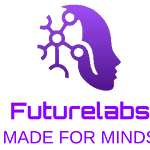“By directly challenging the power and influence of tech giants, Europeans can still create an alternative. Only then can technology continue to contribute to our shared prosperity, rather than becoming a tool of domination allowing a tiny elite to crush the rest of humanity.”
Fragments from the Doctrine: Powers of AI
As world leaders gather in Paris today and tomorrow for the AI Action Summit, we are at a critical turning point in the trajectory of artificial intelligence. The set of technologies commonly referred to as AI has already transformed industries and promises to reshape societies. But the crucial question remains: in whose interest is this transformation taking place, and what kind of future is it building?
The biologist Theodosius Dobzhansky famously said, “Nothing in biology makes sense except in the light of evolution.” In the era of AI, we might say, “Nothing makes sense except in the light of power struggles.” This deep rivalry determines who controls AI, whose interests it serves, and what values guide its development. Currently, most of this power is concentrated in the hands of a few tech giants.
History teaches us the dangers of excessive concentration of power. In medieval Europe, advances in agriculture increased productivity, but barely improved workers’ lives. The nobility and clergy, who owned the land and controlled the wealth, reaped all the benefits of technological and organizational improvements in farming, while workers continued to struggle in poverty. This is a question we face again today. The path AI takes will also determine how economic benefits are distributed among the population and will shape the fabric of the societies we live in.
History teaches us the dangers of concentrated power.
Two main directions are quite clear.
The first is the relentless pursuit of Artificial General Intelligence (AGI), and eventually superintelligence, in which machines outperform humans in nearly every task. While this vision may provoke fears of a machine takeover, the main threat in this scenario actually stems from the unchecked power of those who design and control these systems. Such a future would drastically increase inequality. By stripping us of any capacity for agency, it would also diminish and dilute what it means to be human.
We might ask whether AGI is even realistically achievable in the near future. Even if it were, it is unlikely to bring the productivity gains it promises. A more probable scenario is, in fact, that inferior AI systems will replace workers in tasks where they offer expertise and insight—undermining economic value rather than creating it.
The second path is what my colleagues and I call “pro-worker” or “pro-human” AI.
This vision sees AI as a tool to empower individuals and make workers more productive by providing reliable, contextual information that complements their expertise. The priority is to give individuals control over their own data and enable them to perform a wider range of tasks with greater confidence and autonomy.
Unlike the first, this second vision is not a fantasy.
AI can already create systems that truly assist workers and citizens. But this potential will remain underutilized if it is built on an architecture designed to mimic and surpass humans rather than support them. Instead of creating tools that enhance decision-making, many companies seem focused on developing models that produce entirely hollow pastiches—or other lifeless, superficial imitations. To preserve what makes us human—and leave creation where it belongs—AI must be freed from the shackles of mere imitation. It must provide clear and interpretable guidance to human decision-makers to help them make better-informed choices.
Current AI can already build systems that truly help workers and citizens.
So far, the path followed by the high-tech industry reflects deliberate decisions rooted in both economic and ideological motives.
From an ideological standpoint, the industry is driven by dreams of artificial general intelligence and superintelligence—and of reshaping society itself through new hegemonic technologies.
From an economic standpoint, Big Tech has thrived on models that generate massive profits by automating tasks, reducing labor costs, and monopolizing digital advertising—with little interest in empowering workers or strengthening democracies. New business models, more beneficial to society, could replace this paradigm if startups were given a real chance.
Unfortunately, current market conditions enable the dominance of established firms, as they hold all the cash—to buy out or bury competitors—all the data, massive customer bases, and the complicity of lawmakers who seem to have abandoned competition policy.
If the world was under the illusion that the power of large tech companies would be restrained by U.S. government regulation, the images of techno-Caesarian oligarchs at Donald Trump’s inauguration have shattered that belief.
Protected and supported by the new U.S. administration, Big Tech companies have a clear direction in their relentless AI pursuit: they plan to use the technology as a tool to establish their dominance and reshape global markets to serve their own interests.
AI must go beyond imitation.
It must provide clear and interpretable guidance to human decision-makers, to help them make more informed decisions.
But this is not about surrender. History is not yet written.
At a time when relations between the United States and the European Union are increasingly tense, the Paris Summit offers Europeans the opportunity to regain control of their future—starting with AI.
Europe cannot become a passive consumer of these systems, designed without regard for economic sovereignty, innovative capacity, or democratic values. The recent emergence of DeepSeek’s LLM shows that innovation can still triumph over scale—if we create the conditions for it.
By directly challenging the power and influence of tech giants—for example, through the systematic and strategic application of antitrust legislation—and by embracing a vision of AI that centers on what makes us human, European governments can still create an alternative: a truly competitive environment.
Only then can technology continue to contribute to the prosperity of workers and citizens, instead of becoming a tool of domination that allows a tiny elite to overpower the rest of humanity.
- Daron Acemoğlu, “The Simple Macroeconomics of AI”, MIT, April 5, 2024.
- Daron Acemoğlu, David Autor, Simon Johnson, “Can we Have Pro-Worker AI? Choosing a path of machines in service of minds”, Policy Memo, Shaping the Future of Work, MIT, September 2023.
- Katharine Miller, “Privacy in an AI Era: Comment protégeons-nous nos informations personnelles?”, Stanford University, March 18, 2024.
- Richie Koch, “Big Tech has already made enough money in 2024 to pay all its 2023 fines”, Proton, January 8, 2024.
- Camilla Hodgson, “Tech companies axe 34,000 jobs since start of year in pivot to AI”, The Financial Times, February 11, 2024.






0 Comments